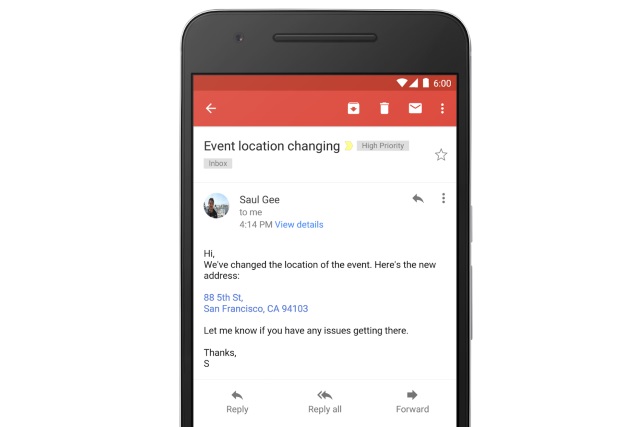
Gmail and Inbox now convert addresses, phone numbers and contacts into clickable links
The chances are that when you read that headline -- particularly if you're not a Gmail or Inbox user -- your reaction was something along the lines of "how is that not already a thing?"
The update is a simple one, but one that will be welcomed by users. Just as URLs are automatically converted into clickable links, so the same luxury is to be lavished on addresses, phone numbers and contacts. Welcome to 2017.

Google Code-in 2017 lets students win prizes while learning about open source
Open source is changing the world, and it is important that children get educated on the subject as early as possible. It's a competitive workforce out there, and students need to be prepared. Of course, learning about open source doesn't have to be a chore -- gaining knowledge can sometimes be fun too.
Google does a lot for the open source community -- far more than just contributing code. Actually, the search giant hosts two very important education-focused open source events -- "Google Code-in" for younger teen students and "Google Summer of Code" for University-level learners. Today, the company announces the 8th annual edition of the former -- Google Code-in 2017. Not only can these teens gain experience by working on an open source project, but they can also win prizes!
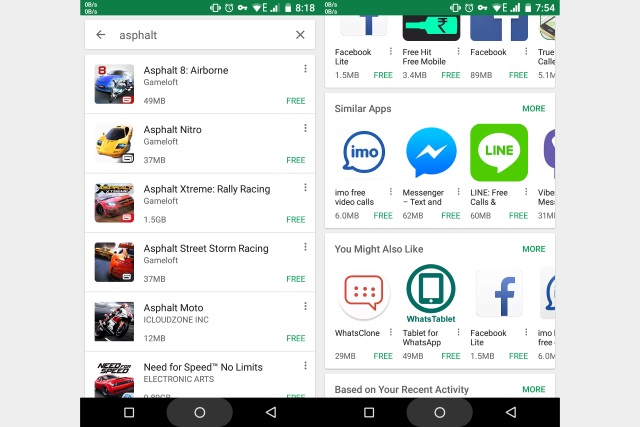
New Google test drops app ratings in favor of download sizes in the Play Store
Some Android users have spotted a change in the Play Store. Since time immemorial, Google has shown star ratings in app listings and search results -- because that’s one of the ways in which users decide what to download. But for some people this has changed.
Rather than a star rating, apps are now listed with their download sizes. For the Android user who is worried about running out of space this is arguably a useful change, but it's not something that most people will regard as a step in the right direction.
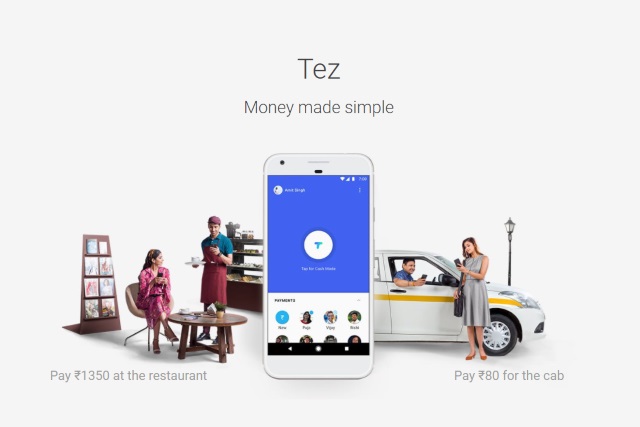
Google launches Tez in India, a new digital payment app for iOS and Android
As had been widely expected, Google has unveiled its new mobile payment service for India. Called Tez, the service is Google's first step into digital payments in Asia.
Tez makes it possible for users to link their bank accounts to the app and then use their phones to make in-person payments and transfers. Support for the government-backed UPI (Unified Payments Interface) means the service is compatible with a number of major banks. At the moment, Tez is limited to India, but there appear to be plans to spread it further.
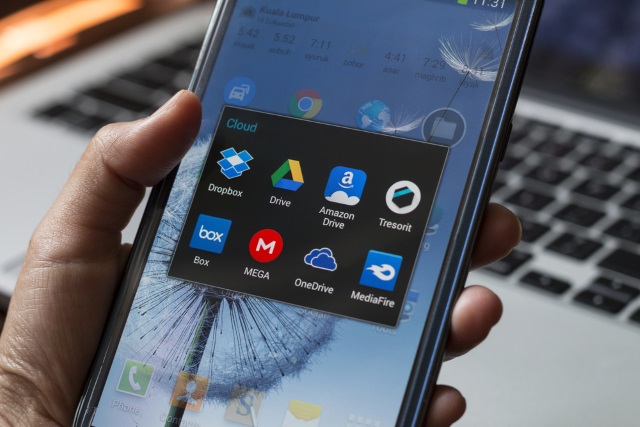
Warning: Google may delete your Android backups without warning
You never fully appreciate the value of a backup until you need it. When you consider how much we all use our phones these days, our handsets contain a wealth of data -- and it make sense to back it up.
If you're using an Android smartphone, you can use an automated backup feature to safeguard the data from your phone by backing it up to Google Drive. With your data stashed in the cloud, you might think all is well -- but Google could delete your backups without giving you any warning.

Google Chrome will finally let you fight back against those annoying autoplay videos
Auto-playing videos on websites. Is there anything worse? Sigh. They have caused me a lot of grief over the years. For instance, I am sitting alone quietly browsing the web at night, when all of a sudden, a loud autoplay video starts, awakening the other people in my home. Quite frankly, once I learn that a website uses this type of media, I try to avoid the site going forward -- if possible.
Today, Google announces that it will be empowering Chrome users to fight back against these annoying videos. Starting with version 63 of the web browser, users will be given the option to permanently mute audio on specific websites. Taking it a step further, version 64 will automatically block all autoplay videos with sound by default, unless the user specifically whitelists that site.

Street View comes to Google Earth VR
Virtual reality is hardly new, but the technology is finally getting to a point where it is fairly affordable and easy to use. It still has a long way to go before it can truly be considered mainstream, as for now, it is largely just for enthusiasts and gamers. There will need to be some truly great non-gaming uses to propel VR to the next level.
Google Earth VR is the type of application that could get people excited about virtual reality, and today, it gains an amazing new feature -- Street View. Yes, with the help of either an Oculus Rift or HTC Vive, you can experience Street View in a more immersive way.
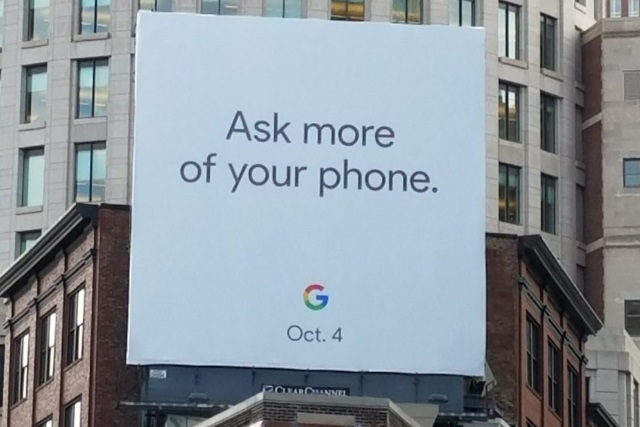
Google ad hints at Pixel 2 and Pixel XL 2 event on October 4
Google is expected to take the wraps off the Pixel 2 next month along with -- probably -- the Pixel 2 XL. Last year's Pixel event took place on October 4, and the appearance of a billboard in Boston suggests that the same date will be used this year.
The Google billboard says simply: "Ask more of your phone" and then the date, Oct. 4. The sighting of the billboard comes just as the LG-manufactured Pixel 2 XL passes through FCC.

Google will launch a mobile payment service in India called Tez
A new report suggests that Google is on the verge of launching a mobile payment service in India. Known as Tez (meaning "fast" in Hindi), the service could launch as early as Monday, according to Indian news site The Ken.
Google Tez is said to offer more payment options than Android Pay, including support for the government-backed Unified Payments Interface (UPI).
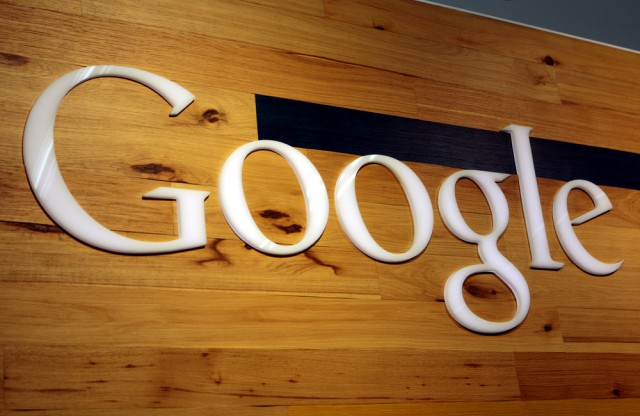
Google plans to appeal €2.42bn EU antitrust fine
Google will appeal the EU fine of €2.42 billion for abusing its dominant position in the market, reports have claimed.
The US giant was fined earlier this year for abusing its monopoly in search engine and shopping comparison services. Google said it respected the EU Commission's ruling, but that it disagrees.
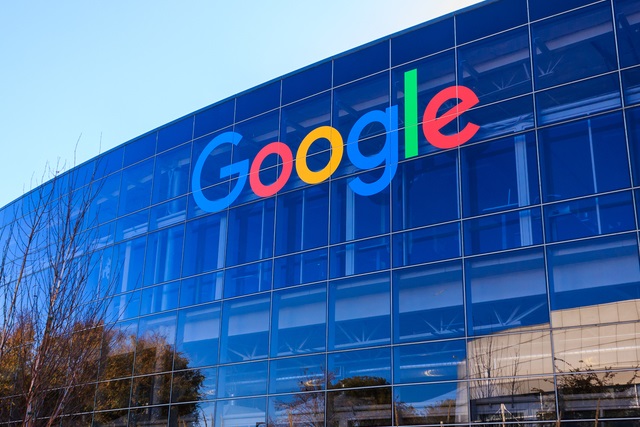
Google announces Dedicated Interconnect for enterprise users
Google has revealed a new way for enterprise users to connect to its cloud platform.
Dedicated Interconnect revolves around a few useful perks. Onboarding is easy through manageable, high-bandwidth and secure network, reducing the cost for enterprises and offering increased security by avoiding public internet routing.

Google publicly releases internal developer documentation style guide
When people think of contributing to either a closed or open source project, they often imagine needing the knowledge of coding. Actually, there are many ways to contribute besides programming, such as moderating a community for the project, spreading awareness, or helping to write documentation to name a few.
The documentation aspect of any project is very important, as it can help people to both understand it and track changes. Unfortunately, many developers aren't very interested in documentation aspect, so it often gets neglected. Luckily, if you want to maintain proper documentation and stay organized, today, Google is releasing its internal developer documentation style guide. This can quite literally guide your documentation, giving you a great starting point and keeping things consistent.
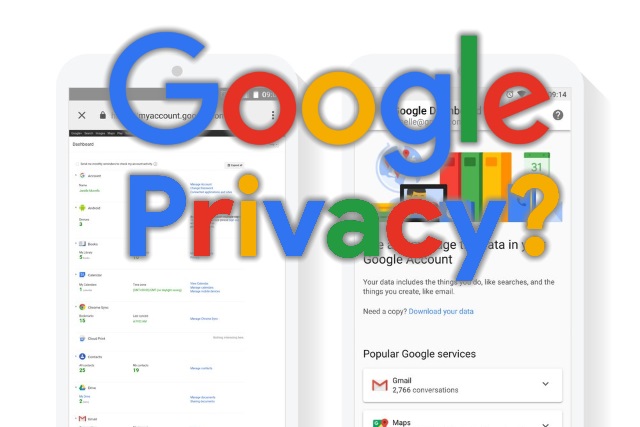
New mobile-friendly Google Dashboard simplifies privacy settings
Google and privacy are not really happy bedfellows, but the company likes to at least give the impression that its users have a semblance of control over what the company does with their data. To this end, the new Google Dashboard aims to simplify the act of taking control of your data.
At least that's the idea. In Google's own words, "Data helps improve our products, keep them safe, and -- with your permission -- tailor them to match your interests." Data is Google's business. It's not in the company's interest for you to have too much control over your privacy settings.

Why should Google buy HTC?
Rumor has it that Google is about to buy HTC's smartphone business. The search giant has the money and the hunger to make it in this market, and the Taiwanese maker has the know-how it needs to come up with the great products that it needs to make a splash -- just look at the Pixel for example. It looks like a match made in heaven.
But, looking at Google's history with Motorola it is hard to understand why the search giant needs to buy another smartphone business. After all, it does not need to own one to make its Pixel smartphones, so why go through all this trouble?
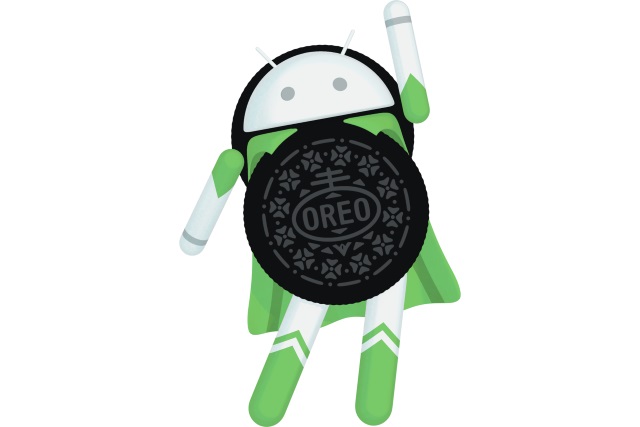
Hide 'running in the background' Notification app for Oreo does exactly what you'd hope
While there is a great deal to like about Android 8.0 Oreo, the latest version of Google's mobile operating system is not without issues. Some users are wondering whether or not their phones will get the upgrade, and some who have upgraded are experiencing problems with data usage.
One niggle that has caused a lot of complaints is Oreo's notification that there are apps running in the background. It's Google's attempt to warn people about apps that might be draining their battery, but many people are more than a little irked by the pestering. Thankfully, there's a free app to kill the irritation.
